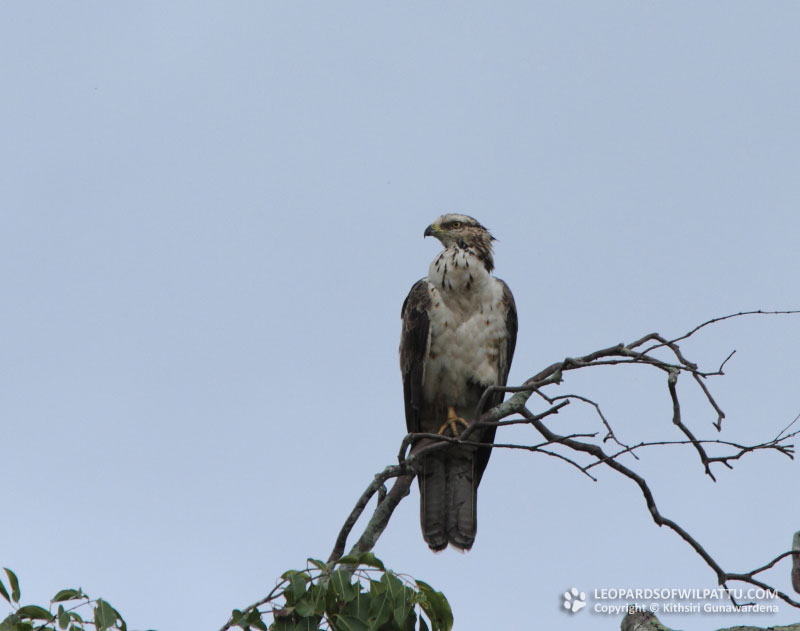
Birds ‹‹ Go Back
A small resident population of this species breeds in the country. During the migrant season, however, their numbers increase and it can be seen throughout the country. This species has an extremely large range and breeds from central Siberia to Japan. The northern populations migrate to tropical Southeast Asia during winter. There are six subspecies recognized of this species and the race that breeds and migrates to Sri Lanka is P. p. ruficollis, which is also found in India, Myanmar and in China.
The conservation status of this species is regarded as Near Threatened (National Red List 2012).
Crested Honey Buzzard is a species protected under the Fauna and Flora Protection Ordinance as amended by Act No. 22 of 2009.
This is a species that is found through out the lowlands up to the highest mountains. During the migrant season this is one of the commonest raptors in the country. I have recorded this species from the Jaffna peninsula, Mannar Island, Horton Plains National Park, many localities in the dry zone and the wet zone. During the last two decades they have become increasingly common in and around the city of Colombo as well. On the 6th of march 2005 at a tea estate in Welimada at an altitude of 1133 meters I, along with a few other birding friends, observed a nest of this species built on a Gravellia tree about 75 feet from the ground. We the male and the female arrive at the nest with pieces of honeycombs to feed the chicks. The nest had two chicks covered in down of which one was larger than the other. The larger chick had developed primary and tail feathers of about two inches. It was quite aggressive towards the smaller chick, which perched at the edge of the nest. The larger chick grabbed all the food the parents brought to the nest.
In Wilpattu this species can be seen, throughout the park, during the migrant season. I have often come across these birds perched on exposed branches during the morning game drives between the park entrance and Maradanmaduwa. They are quite shy and would fly off upon being detected unless their perched at a fair distance.




